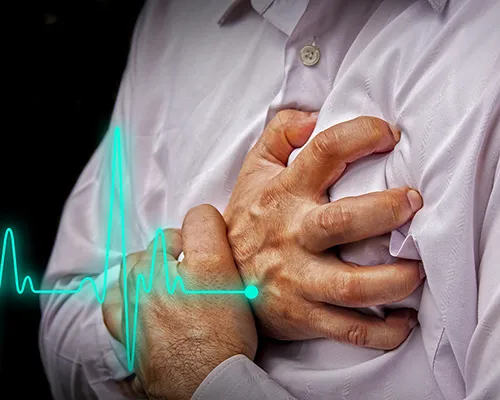Heart attacks have become increasingly common. At this point, we all already know someone who has had a form of heart attack. If you or your loved one should ever suffer from a heart attack, it can be a very scary experience. Fortunately, as always, knowledge is power.
It is important to understand what a heart attack actually is, what causes, it, what the signs are and what to do should you or anyone around you experience one.
According to the World Health Organization (WHO):
“Over 17.7 million people die each year from Cardio-vascular Diseases (CVD). This accounts for 31% of all deaths worldwide. Up to 80% of CVD deaths are the result of heart attacks and strokes.”
What Is A Heart Attack?
A heart attack is a medical emergency. It occurs when the heart’s blood supply becomes obstructed. As result of the obstruction, a segment of the heart tissue dies. A heart attack is also known as a cardiac infarction myocardial infarction and coronary thrombosis.
Causes and Risk Factors
Heart attacks can actually occur at any time. However, there are certain risk factors, which make them more probable, such as:
Lifestyle Factors
- Genetics
- Age (men over 45 and women over 55 )
- Poor Diet: including one in high amounts of saturated fats
- Smoking: Smokers are at much higher risk than non-smokers
- Obesity
- Work Stress
- Physical Inactivity
Pre-Existing Illnesses, Which Make A Heart Attack More Likely:
- Angina
- Diabetes:
- High Cholesterol Levels
- Previous Heart Surgery
- Hypertension
- HIV: People who are HIV-positive have a 50 percent higher risk.
- Previous Heart Attack
Symptoms of a Heart Attack
The victim of a heart attack may experience extreme pain, pressure and electric shock in their chest in the moment this occurs. This sensation can also spread to the neck, back and arms.
Warning Signs
At the onset of a heart attack, there are four main warning signs that one should never ignore. These include:
- On-going intervals of pressure and pain in the chest, lasting several minutes, then disappearing and then re-occurring
- Sudden and unjustified shortness of breath
- Light-headed-ness, nausea and a cold sweat
- Pain in the neck, jaw ,stomach, arms or back
If someone is experiencing any combination of these symptoms, seek medical attention immediately.
Treatment
As soon as anyone starts to experience any of the symptoms related to a heart attack, time becomes a major treatment and recovery factor. The quicker you can get help, the better.
Treatments during a Heart Attack
One of the main symptoms of a heart attack is loss of breath. In this situation, the person experiencing a heart attack would need breathing assistance, such as CPR (cardio-pulmonary resuscitation). This should preferably be administered by a professional through the use of manual chest compressions, mouth-to-mouth resuscitation and a defibrillator.
Treatments Following a Heart Attack
Depending on the cause and the severity of the heart attack, treatment can range from the use of electric shock to surgery and various other measures
After the heart attack, a doctor will recommend the course of treatment to help the patient recover as well as to prevent another heart attack in the future.
Treatments include:
- Medication
- Lifestyle changes
- Surgery
- Various forms of physical therapy
Doctors-on-Call
In an emergency like a heart attack, you need professional medical assistance, immediately. This is how a service like Doctors-on-Call can save lives. Doctors –on Call are available in all areas and can be at the requested premises within minutes of a call. Our Doctors are able to diagnose the heart attack or relevant illness and administer the medical care needed. If the person suffering from a heart attack needs to be admitted to a hospital, then our doctors can arrange this quickly and efficiently.
Our service can save lives and give you peace of mind.

